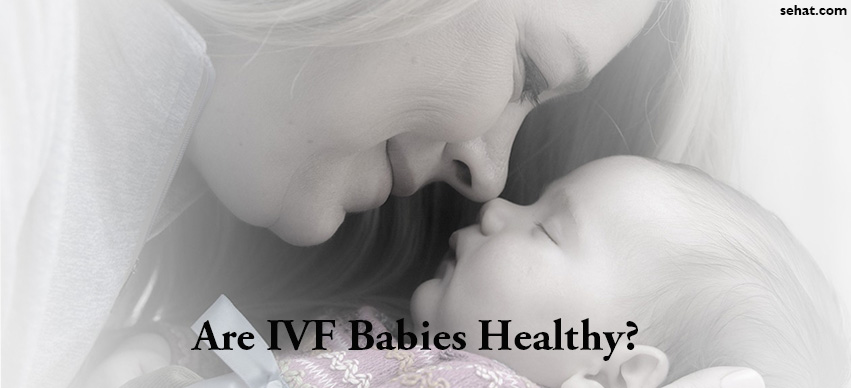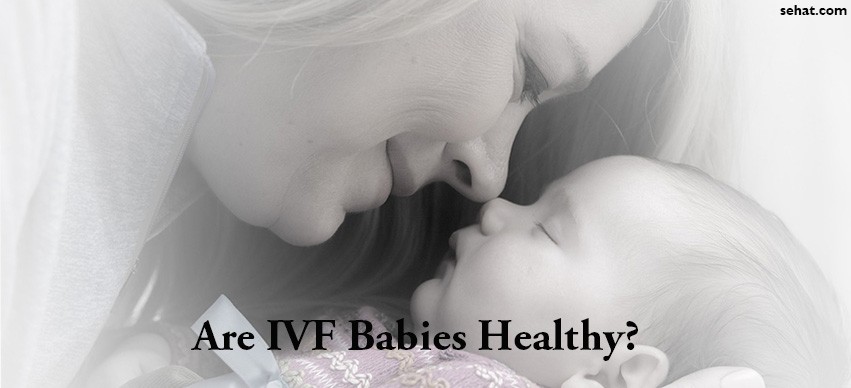Microplastics in Humans: Understanding the Risks and How to ..
8 Min Read


Out of the million babies born every minute around the world, almost 5 million have been conceived through IVF technology today. Every couple planning on having a baby would have thousands of questions in their minds with respect to the health of the baby. Especially if they have tried their best to conceive naturally and all the hopes have been transferred into doing an IVF treatment by their doctor.
It's a general prejudice that IVF born babies are not as normal as those born naturally. People need to first understand that IVF treatment received through ART means assisted reproductive technology and not artificial reproductive technology. There are still discussions going on, on this topic, if the baby born is artificial or not. Studies show that around 1.5 million ART cycles are performed each year worldwide, with an estimated 350,000 babies born.
There are several questions and concerns that are still researched upon the health aspects of the babies born using IVF. The most important is, if IVF babies are healthier and smarter as normal babies? Let's take a look at a few of them.
Since IVF babies are not offshoot of a natural process, even today there are arguments that they are artificial and not normal. Some people are extremely skeptical about it and consider it that way because they are products of technical expertise of specialised doctors in this field. We need to keep in mind that even if they are designed in cutting edge laboratories, IVF babies are normal like other children, as far as their mental capacity and physical abilities are concerned. The only difference is the sperms and eggs, which are required for fertilisation are fertilised in the laboratory under supervision of doctors.
Later on, the embryo is placed into the uterus of women through the cervix. This is only done if the male partner is unable to produce high-quality sperms, the female is unable to produce high-quality eggs or if there are any blockages in the fallopian tube. Everything else after this remains the same as that of a normal pregnancy, where the woman gives birth to the baby after its stipulated time. It is almost difficult to differentiate between an IVF and normal baby unless someone actually tells, as they are quite normal and much healthier in their outlook.
There were many studies conducted to find out if IVF babies are smarter than their natural- peers. One of them was the studies conducted in Iowa families that conceived via IVF. Parents were contacted and requested to provide details of their kids overall performance in education as well as other activities. It was noticed that children who were currently below 17 years age outperformed their matched normal peers in all subjects and grades. They suggested that some of the reasons why the IVF babies were smarter could be because of the following parent/child features too:
More privileged socio-economic status and higher levels of parental involvement were also taken into account for the kid’s high scores. Dr. V.M.Thomas, an IVF & Infertility specialist who runs the 'Chennai Fertility Centre' says, most children born through IVF treatment have grown into young adults with quality education and life achievements similar to that of naturally born.
It certainly is a concern whether IVF children are healthy or will it make them more vulnerable to developmental or cognitive issues in the future. Looking at the connection between neurological disorders and IVF procedures, there was a small but significant risk of intellectual disability found among twins and triplets compared to singletons.
Procedures that involved more manipulation of the sperm to promote fertilization were more likely to be associated with higher rates of neurological issues, than the IVF ones without it. Larger cognitive issues are associated with male based fertility issues; however the number is pretty low in this case and hence, men are requested not to freak out. One of the interesting facts is that single babies performed better than twins and triplets; however triplets had a higher score than the average non IVF children.
The neurological problems among IVF babies were more likely brought about by factors related to infertility and not the treatments themselves. In general, if we take a look, IVF babies are healthier and hence, it is a safe technology today for any couple willing to take it. There are a lot of studies and research showing babies born through this treatment went on to grow and become healthy adults.
Since surgical machinations and technical expertise are deployed in the IVF method the health of the infant is a highly important matter of concern in this method. They are at increased risk of being small for gestational age, having low birth weight and pre-term birth during the initial phase. Research found that as and when they grew, they were mostly admitted in hospitals for cases like tonsillectomies, hernia, dental extractions. However, there were no other significant health disparities found. Later studies revealed no significant difference in the rate of autism, learning or speech disabilities.
By the time both groups reached 12 years there were not much difference in their tertiary entrance score and by the time they were in mid-20s to late-30s, they completed similar education backgrounds too.
This clearly states that babies born through IVF are great with their health and less do we actually need to worry about them. With solid scientific research and studies this confidence can however be reassured if required.
IVF technology has only been used for the last 30 years and a lot of research and development is still going on in this field. With the current studies and figures we can, however conclude that IVF is surely a trustable technology for the future generations. IVF babies are normal, healthier and smarter in their own ways and they are not people to be underestimated. Sometimes we all need to believe in science and its miracles, this one being a special one that can bring smiles to our hearts.